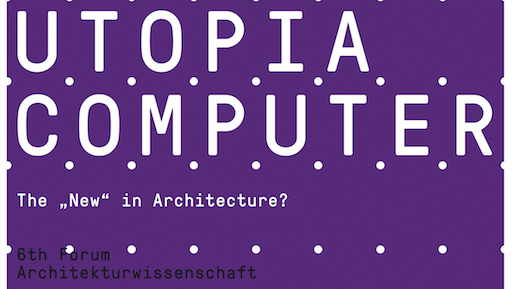On November the 15th and 16th the University of the Arts offers a workshop adressing the history of computers and how it was and still is intertwined with architectural elements.
The critical concern of the workshop “Utopia Computer” is the euphoria, expectation and hope inspired by the introduction of computers within architecture in the early digital age.
With the advent of the personal computer and the launch of the Internet in the 1990s, utopian ideals found in architectural discourse from the 1960s were revisited and adjusted to the specific characteristics of digital media. Buckminster Fuller’s World Game, Gordon Pask’s belief in an architecture that can learn via feedback loops, and Frei Otto’s form-finding experiments bore witness to concepts of participatory planning procedures and self-optimising design processes.
All these ideas gathered momentum in the 1990s: virtual spaces were explored as potential sites for generating collective and interactive urban solutions, and algorithm-based computer software fostered the notion of a self-organising architecture. At the same time, technological developments that influenced architectural practice at the turn of the millennium were part of neoliberal shifts in politics and the economy. Scenarios of all-encompassing surveillance and the commercial use of private data, as well as social injustices resulting from free-market economic practices, thus beg the question, have dystopian narratives replaced utopian ones?
Taking the 1990s discourse as a starting point, the workshop seeks to explore in what ways utopian ideas from the 1960s have impacted today's digital culture by addressing the following topics:
– Subjects and Societies – explores the effects of digital technology on social actors who interact with architecture.
– Organism and Organisation – focuses on the assumed and actual changes in design due to digitalisation, especially with regard to natural growth processes.
– Data and Form – looks at how digital tools transform architectural design by processing large amounts of data.
Contact: forum2019@architekturwissenschaft.net

